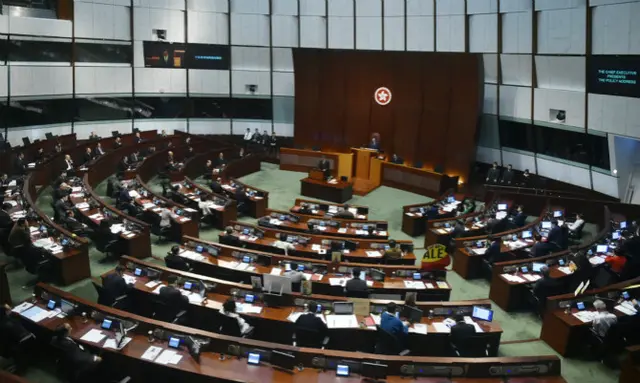The Hong Kong Special Administrative Region (SAR) government aims at expediting the increase of housing supply and seeking a balance between land development and conservation, Hong Kong SAR Chief Executive Leung Chun-ying said Wednesday.
Starting the chapter on housing and land use in his 2017 policy address, Leung pointed to expediting and increasing supply as the "ultimate solution" to Hong Kong's various housing-related issues.
"The housing problem in Hong Kong boils down to land use, which is not a technical issue, but a conceptual one," Leung said, suggesting re-examining Hong Kong's land use planning in a "serious, scientific and objective manner," so as to increase land supply and lower the levels of land premium, property prices and rentals.
According to the address, in the next five years, estimated public housing production by the Hong Kong Housing Authority and the Hong Kong Housing Society will be about 94,500 units.
The Hong Kong SAR government's housing supply target for the next decade starting 2017-2018 is 460,000 units, including 200,000 public rental housing (PRH) units and 80,000 subsidised sale flats.
On private housing, the projected supply of first-hand residential properties for the coming three to four years was 94,000 units. This is 45 percent higher than the figure at the beginning of the Hong Kong SAR government's current term, and a record high since the regular release of supply statistics 12 years ago.
In the short to medium term, by changing existing land uses and increasing development intensity, a total of over 380,000 residential units can be provided. In the medium to long term, various new development areas and new town expansions, as well as potential railway property development projects being planned, can provide over 220,000 residential units and over 8.6 million square meters of commercial and industrial floor area.
In sum, the various short, medium and long-term land supply initiatives can provide over 600,000 housing units in total.
Meanwhile, Leung pointed out that the most distinctive characteristic of land use planning in Hong Kong is the high proportion of country park area, which accounts for 40 percent of Hong Kong's total land area, and is six times that of its total residential land.
"The current-term government is committed to environmental protection and ecological conservation, and seeks to strike the right balance between development and conservation," Leung said, adding that "we will seek to conserve and revitalize the ecology and culture of rural areas based on the sustainability principle, and respond to the aspirations of urban dwellers for urban-rural symbiosis."
(APD)
 简体中文
简体中文

